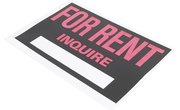
When you sell a rental property, your profits are subject to capital gains tax since you don't get the same exclusions that you do on your personal residence. However, given that the Internal Revenue Service lets you use what you pay for closing costs and for property improvements to both reduce your selling price and increase your purchase cost, your profit might not be as large as you think. On the other hand, depreciation recapture might leave you with an additional unexpected tax bill.
Tips
The amount of capital gains you will pay on the sale of your rental property will largely be determined by the length of time you owned it and the specific tax bracket you find yourself in following the sale.
Adjusted Cost Basis
To find the cost of the home, start with your original purchase price. You can add most of the closing costs that you paid when you bought it, although you'll have to leave your mortgage-related costs out. For instance, if you bought your rental for $95,000, paid $1,200 in title costs, $750 in legal fees, and $1,800 for your mortgage, your cost would be $96,950, which encompasses everything but the mortgage.
Next, add in the cost of any improvements that you made to the house. An improvement is anything that you do to the property that increases its value, changes its use or makes it last longer, and includes everything from adding a swimming pool to replacing a roof to renovating a bathroom. If you spent $9,000 on a new roof and $10,500 on a kitchen remodel, you'd add that $19,500 to the $96,950 cost to find a total adjusted basis of $116,450.
Assessing the Amount Realized
Your gain doesn't come from subtracting your selling price from your total cost. The IRS lets you pull all of your sale-related expenses out of the price first to calculate what it calls the amount realized. For instance, if you sold the house for $179,000, paid a 6.5 percent commission of $11,635 and paid $3,250 in closing costs, your amount realized would be $164,115.
Calculating Gain or Loss
To find your gain or loss, subtract your adjusted basis from your amount realized. If the number is positive, you have a gain that will be taxable. If it's negative, you have a loss that you can use to offset other taxable gains. To find the bottom line for a house with a $116,450 adjusted basis and a $164,115 amount realized, subtract the former from the latter to find a total gain of $47,665. The tax treatment of the gain depends on how long you held the asset – short-term capital gains taxes apply to homes held for less than one year, and long-term gains apply if you hold it for more than a year.
Capital Gains Tax
Assuming that you held the house for over a year and made a profit, your capital gains tax rate depends on your income. If your income falls in the lowest two tax brackets, your capital gains rate is zero percent. When you start paying taxes in the third bracket, the capital gains tax rate goes up to 15 percent. If you're in the top tax brackets, you'll pay a 20 percent capital gains rate.
If your income is $200,000 or higher if you're single or $250,000 or higher if you're married, you'll have to pay a 3.8 percent Net Investment Income Tax (NIIT) surcharge. If you held the house for less than a year, your tax rate will be your regular income tax rate, plus the 3.8 percent surcharge if your income is high enough. These rates change on an ongoing basis, but were current as of late 2019.
Depreciation and Recapture
Even if you have a loss, you might still have to pay tax. The IRS has one more surprise for rental property owners. While you owned your rental property, you were entitled to depreciate the building and any improvements. If you sell it for more than the value after subtracting all of your depreciation, you'll have to pay a special 25 percent Section 1250 depreciation recapture tax on the depreciation you claimed.
For example, when you have a property with a $125,000 adjusted basis and you've claimed $55,000 in depreciation, the depreciated basis is equal to $70,000. You pay the 25 percent recapture tax on the difference between the depreciated basis and the sales price, up to $125,000. If you sell for more than that price, it's a capital gain and subject to the capital gains tax rate.
References
- IRS: Publication 523
- Oblivious Investor: Capital Gains and Losses: Short-Term and Long-Term
- Tax Policy Center: How are capital gains taxed?
- Investopedia: Unrecaptured Section 1250 Gain
- IRS: Find Out If Net Investment Income Tax Applies to You
- The Balance: How to Figure Out Net Sale Profits When You Sell Your Home
- Internal Revenue Service. "Publication 544 (2018): Sales and Other Dispositions of Assets," Page 20.
- Internal Revenue Service. "Topic No. 409 Capital Gains and Losses." Accessed Feb. 13, 2020.
- Internal Revenue Service. "IRS provides tax inflation adustments for tax year 2020."
Writer Bio
Steve Lander has been a writer since 1996, with experience in the fields of financial services, real estate and technology. His work has appeared in trade publications such as the "Minnesota Real Estate Journal" and "Minnesota Multi-Housing Association Advocate." Lander holds a Bachelor of Arts in political science from Columbia University.

